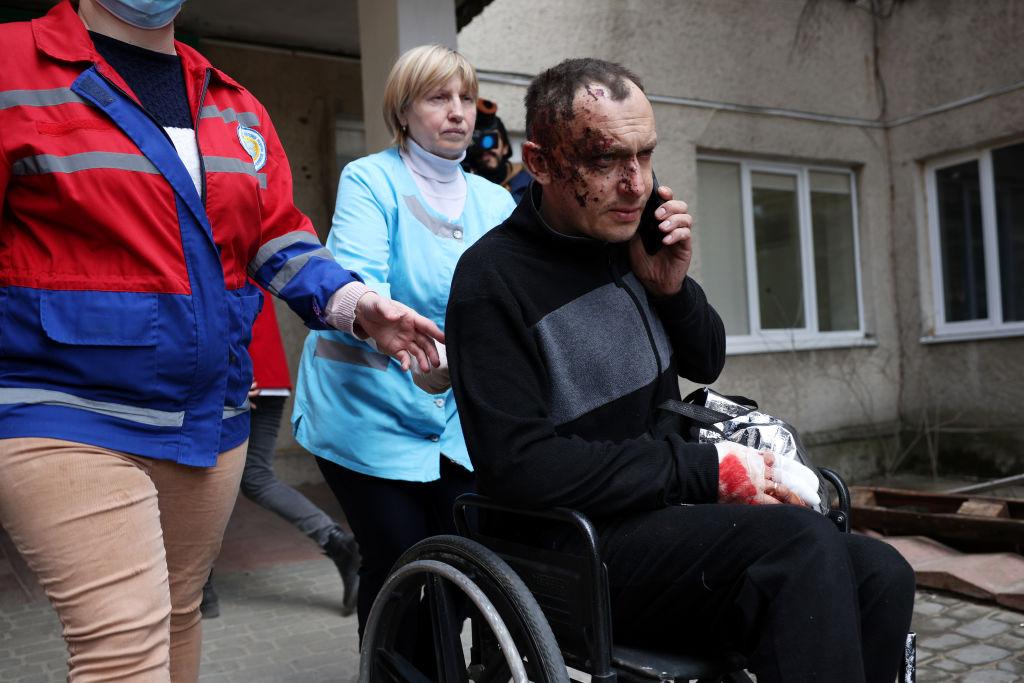TRUSKAVETS, Ukraine—Russian and Ukrainian officials have offered contrasting accounts of the casualties from the missile attack on a military training facility in Yavoriv, Ukraine, on March 13.
Hours after the aerial strike, the governor for the region said 35 people were killed and 134 were wounded. A spokesperson for the Lviv Regional Administration told The Epoch Times on March 14 that according to the Ukrainian Ministry of Defense, no foreigners were killed in the attack.





